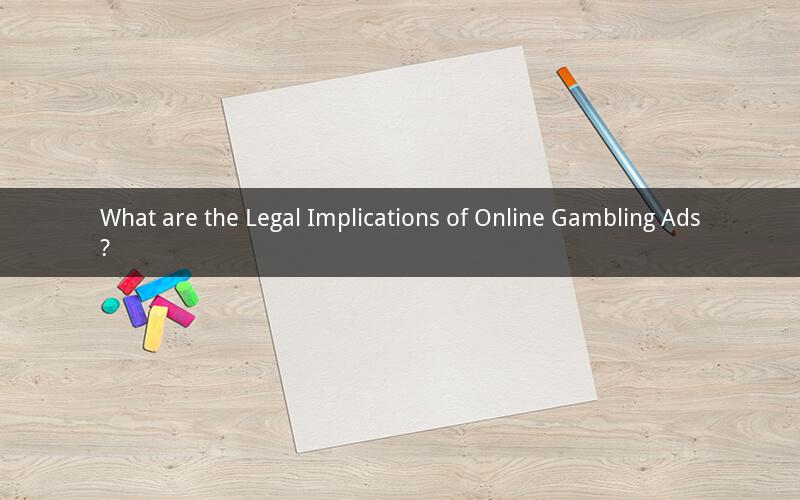
Table of Contents:
1. The Rise of Online Gambling
2. Understanding Online Gambling Ads
3. Legal Challenges Faced by Online Gambling Ads
- 3.1. Advertising Restrictions in Different Countries
- 3.2. Ethical Concerns and Responsible Advertising
4. Case Studies: Success and Failures in Online Gambling Ads
- 4.1. The Story of PokerStars
- 4.2. The Decline of Betfair
5. Technological Innovations and Legal Compliance
6. The Role of Self-Regulation in Online Gambling Ads
7. Consumer Protection and the Future of Online Gambling Ads
8. Conclusion
---
1. The Rise of Online Gambling
Have you ever wondered how online gambling has become such a massive industry? The rise of online gambling has been nothing short of meteoric. With the advent of the internet, the world has become a global village, and the gaming industry has capitalized on this interconnectedness. Online gambling platforms offer convenience, a wide array of games, and the thrill of betting from the comfort of one's home. However, this rapid growth has raised significant questions about the legality of online gambling ads.
2. Understanding Online Gambling Ads
Online gambling ads are promotional materials designed to attract potential players to gambling websites. These ads can range from catchy jingles and flashy graphics to celebrity endorsements and sponsored content. They often promise big winnings, excitement, and a thrilling experience. However, the allure of these ads can sometimes overshadow the risks associated with online gambling.
3. Legal Challenges Faced by Online Gambling Ads
3.1. Advertising Restrictions in Different Countries
The legality of online gambling ads varies significantly across countries. In some places, such as the United States, the situation is particularly complex. The Federal Wire Act of 1961, for example, makes it illegal to use wire communication for sports betting, but it does not explicitly address online gambling. However, individual states have taken different approaches to online gambling, leading to a patchwork of regulations.
In contrast, countries like the United Kingdom have a more lenient stance. The UK Gambling Commission regulates online gambling ads, ensuring they are transparent and do not target minors. This regulatory framework has allowed the industry to flourish while protecting consumers.
3.2. Ethical Concerns and Responsible Advertising
Ethical concerns arise when online gambling ads are overly promotional and do not adequately disclose the risks involved. The use of deceptive tactics, such as hiding fees or exaggerating the odds of winning, can lead to unrealistic expectations and financial hardship for players. Responsible advertising is crucial to maintain the integrity of the industry and protect consumers.
4. Case Studies: Success and Failures in Online Gambling Ads
4.1. The Story of PokerStars
PokerStars, one of the world's largest online poker sites, has been a trailblazer in the online gambling industry. The company's marketing strategy has been innovative and successful, particularly in the United States. PokerStars has utilized social media campaigns, celebrity endorsements, and strategic partnerships to create a strong brand presence. Their ads often focus on the competitive nature of poker and the thrill of playing against other skilled players.
4.2. The Decline of Betfair
Betfair, a leading online gambling operator, has faced legal challenges and criticism regarding its advertising practices. In 2015, the company was fined by the UK Gambling Commission for failing to prevent children from accessing its website. This incident highlighted the importance of responsible advertising and the need for stricter regulations.
5. Technological Innovations and Legal Compliance
The advent of blockchain technology and cryptocurrencies has opened new avenues for online gambling. These innovations have the potential to revolutionize the industry, but they also raise legal and regulatory challenges. Advertisers must ensure that their campaigns comply with the evolving legal landscape and technological advancements.
6. The Role of Self-Regulation in Online Gambling Ads
Self-regulation plays a crucial role in ensuring the legality and ethical standards of online gambling ads. Industry organizations, such as the Interactive Advertising Bureau (IAB), have developed guidelines to help advertisers create responsible and compliant ads. Self-regulation is essential in addressing the complexities of the online gambling industry and maintaining consumer trust.
7. Consumer Protection and the Future of Online Gambling Ads
Consumer protection is a top priority in the online gambling industry. As regulations continue to evolve, advertisers must prioritize transparency, responsible advertising, and ethical practices. The future of online gambling ads lies in striking a balance between innovation and consumer safety.
8. Conclusion
The legality of online gambling ads is a multifaceted issue that requires careful consideration. As the industry continues to grow, it is essential to address the challenges posed by advertising restrictions, ethical concerns, and technological advancements. By promoting responsible advertising and protecting consumers, the online gambling industry can thrive while maintaining its integrity.
---
Questions and Answers:
1. Q: How do online gambling ads differ from traditional gambling ads?
A: Online gambling ads often utilize digital platforms and social media to reach a wider audience. They also tend to focus more on the excitement and convenience of playing online, rather than the physical location of traditional casinos.
2. Q: What are some common tactics used in online gambling ads?
A: Common tactics include celebrity endorsements, catchy jingles, and promises of big winnings. Some ads may also use deceptive practices, such as hiding fees or exaggerating the odds of winning.
3. Q: How do regulations affect the online gambling industry?
A: Regulations help ensure that online gambling ads are transparent, responsible, and comply with legal requirements. They also protect consumers from deceptive practices and promote a safe and fair gaming environment.
4. Q: What role does self-regulation play in the online gambling industry?
A: Self-regulation helps maintain industry standards and promote responsible advertising. It allows the industry to address challenges and adapt to changing regulations without excessive government intervention.
5. Q: How can consumers protect themselves from deceptive online gambling ads?
A: Consumers can protect themselves by researching the company, checking for regulatory compliance, and being aware of the risks involved. They should also avoid providing personal and financial information to untrusted sources.